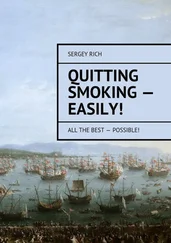Yours,
Delmore
To James Laughlin
405 East 7th St.
Bloomington, Indiana
June 26, 1951
Dear Jay:
My brother was finally located in Seattle. The pursuit had narrowed down to some place between Los Angeles, San Francisco, and the Canadian border when at last Kenneth — a man of few words — wrote me that he had returned to the aircraft industry as a tool engineer, giving up household appliances because of credit restrictions. This illustrates once more a truth I have tried to force on the American reading public — the international character of our lives; I wonder why I seem to be the only one who finds it fascinating. However, many thanks for offering to put Marie Rexroth on the trail. 13
Elizabeth and I want to buy a house which we saw last week in Flemington, New Jersey. It has six acres, three bedrooms, two sheds, a barn, a Bartlett’s pear tree, two peach trees, a vegetable garden, a wonderful rooster, and among other valuable assets, a bathtub, for which I have yearned these last four years since leaving Cambridge. We have raised all but one thousand of the four thousand and five hundred dollars necessary to the purchase of it (the total cost is nine thousand, but half is a mortgage), and I wonder if you can lend us the one thousand we need, for a period of two years? You might lend the money to us either as a personal loan, or as an advance of five hundred to Elizabeth and five hundred to me, on books which ND published within the next two years. I will probably have a new book of short stories ready to show you by fall, and that with the addition of Elizabeth’s second novel, ought to cover the advance. If it does not, then we will be able to repay you the loan at the end of two years, because both of us will have to take full-time jobs by the fall of 1952 unless we manage to make more money than we are making now. We figure that by getting the house and living in the country as much as possible, we will be able to get more work done during the coming year. I have the promise of a good teaching job for 1952–1953, and unless I succeed in writing for the slicks during the coming year (as I have been trying to do for the past month), I will have to teach anyway, the fall after this, since there will be no P.R. salaries after next December.
The house appears to be a good investment and the kind of a place we need very much, as you seemed to have noticed last winter when you suggested that we use your place in Norfolk during your absence and thus get rid of cabin fever. It is just an hour and a half from New York, neither too near nor too far, it is entirely rural, and it is just right for the young novelist and the ageing poet’s declining years. I am sure that we can pay you back at the end of two years. However, if you are hard-up for cash or hard-pressed in one or another way, we will naturally understand, since we know how many other needs you have to handle. But do let us know as soon as you can.
We arrived here last Sunday and today I began to teach Yeats and Eliot at the School of Letters, which is the new name of the Kenyon School of English. It is very pleasant, but very hot. Arthur is here but he cannot play tennis with me because his doctor says that he is against it, so I am playing with Francis Fergusson who, as he confesses, is so eccentric a player that his eccentricity becomes a form of power. I never can tell — anymore than he can — what he will do next, while Arthur, while powerful, was entirely predictable. If Francis were but ten years younger, what matches we might have! Tate is here too; he has just become a Catholic and attacks Cardinal Spellman with a vigor he formerly reserved for Robert Hillyer. 14All in all, it looks like a pretty hot six weeks, and I wish you could come out and inspect the little boom in culture. Next week I lecture to the entire congregation on television and literature, and what chance there is that any sensible and sane portion of the reading public will ever open a book again once they get used to the television scream. As Shakesbeer said, “Some rise by vice, and some by virtue fall,” and the main thing is just to keep swatting the ball.
We passed through Greenfield, Indiana, on our way out, and it turned out to be the former home of James Whitcomb Riley, which made me think of Marguerite Young, since the dear girl is writing a book about the great bard. 15The heat and the strain of driving for three days was such that I was moved to compose the following masterpiece on the spur of the moment:
Who’s your Hoosier poet?
Pure corn entirely?
Marguerite would know it!
James Whitcomb Riley!
As Tears Eliot remarked, and he ought to know, poetry is a mug’s game — but if one is born a mug, one might as well accept the fact.
As ever,
Delmore
To Roy P. Basler A
725 Greenwich St.
New York City 14, N.Y.
September 9, 1958
Dear Roy:
Enclosed is the corrected copy of my lecture. You have edited it very well indeed and it must have been a trying task. I also enclose a list of the names of people I would like copies to be sent to; if it is possible to send more than twenty-five copies I wish you would let me know: and if it is a question of the Library’s budget I would be glad to pay for the additional copies. As you doubtless know, this is the practise of a good many literary reviews.
I am sorry to have to say that I will almost certainly have to make use of the letter you wrote me last September, about my being able to lecture in January. I would prefer of course to forget about everything that happened, including your letter, but it is impossible at present to do so. I am sure that you acted not only in all innocence and in natural concern about your program; nevertheless, the incident is important for a variety of reasons on which I will not dwell except to say what is relevant to your letter of inquiry concerning my health. It had not occurred to me when I last wrote you that it would have been possible to find out if I had lost my mental health in a good many ways other than that of writing a letter, the envelope of which was addressed to me — so that I would be certain to get it — but the body of which was addressed to my former wife. You will understand my feelings about the matter if I tell you, as I may [have], in part, before now, that I was the object of illegal arrest and detention in Bellevue for seven days, during which, as a result of improper treatment and false information, I had a heart attack on the fourth day and was put in a straitjacket and came close to dying. I did not know of this until last spring when I had a chance to examine the medical records. Your own letter was but one incident — there were a good many others — in which persons of great wealth, having involved themselves in a criminal conspiracy of the most serious kind — attempted to make it impossible for me to protect myself by preventing me from getting any financial help. Use was made of others as innocent of what was going on as you were and also of persons as unscrupulous as Conrad Aiken. During the past year I have repeatedly found that the defamation and the stigma consequent upon it have had serious consequences which I cannot do very much about personally, either through my work or by an explanation which sounds lurid and implausible to anyone who does not know the personas involved. I make this explanation to you with the same feeling that, although I owe it to you as someone who honored me by inviting me to lecture, it will nevertheless fail to be entirely convincing. This is one instance in which there is only one side of the story.
Sincerely,
[Unsigned carbon.]
To Dwight Macdonald 16
House of Mirth
The Crack of Dawn
December 14, 1958
Dear Dwight,
Events are in the saddle, as Emerson rather pallidly remarked 100 years ago. But before burdening you with what has occurred since Saturday at 3, I must tell you that I can’t use your check until I hear from Art News and immediately add that this letter is not a new attempt of Laughing Boy to ask you for more financial aid. You’ve been more generous in all ways than anyone else, by far, and this sentence is, to be plethorically emphatic, sincere, candid, unequivocal, literal, etc.
Читать дальше












